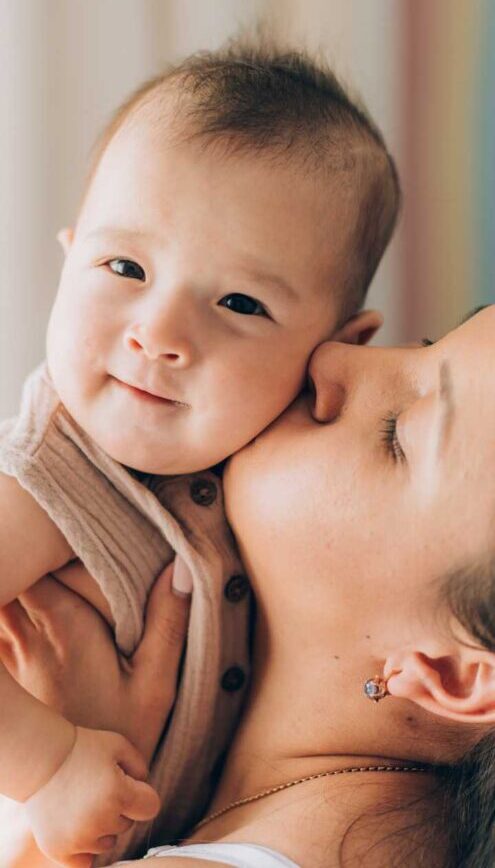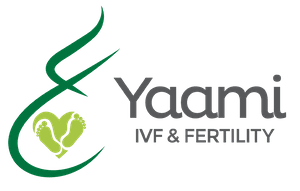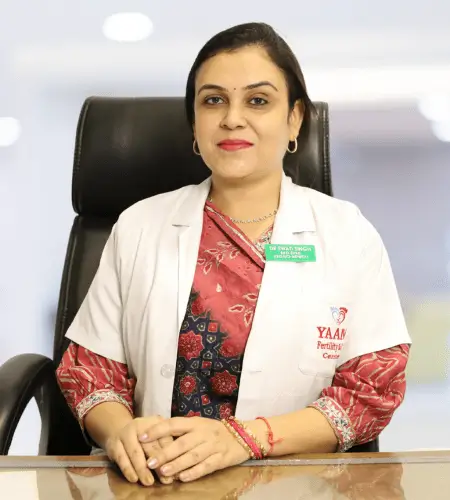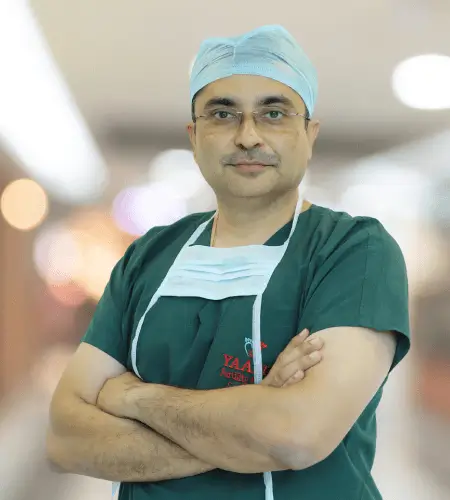Female Fertility Treatment in Indore

Infertility is a prevalent condition. It is a condition in which both getting pregnant and giving birth are more difficult or impossible altogether. At least 10% of women experience some form of infertility.
As a woman ages, her odds of being infertile rise. For couples, 33% of infertility causes are ascribable to male issues, 33% to female issues, and 33% to a mix of factors or unknown causes.
Are you also not able to conceive even after trying for more than a year?
If yes, then Female Infertility Causes can be one of the hindrances, and Yaami Fertility expert doctors have the best analysis and treatment procedure for you!
Consult with the medical professionals at Yaami Fertility & IVF Centre for examination and treatment of infertility to know more!
Female Fertility Treatment in Indore
Following are the various female fertility treatments in indore offered by Yaami Fertility
1. Ovulation Induction
- Ovulation Induction aims at correcting ovulation disorder.
- The first step is correction of any condition causing ovulation problem like thyroid , prolactin or adrenal hormonal issues, extremes of body weight etc.
- Fertility drugs called ovulogens are given to induce growth of ovarian follicles containing eggs.
- These medicines are commonly oral tablets (like letrozole, clomiphene citrate & Tamoxifen citrate) or sometimes gonadotrophin hormone injection (Recombinant FSH/urinary FSH)
- Usually Ovulation Induction treatment is done for 3-4 cycles.
Who can benefit from Ovulation Induction :
- Women with PCOD -the aim is to induce ovulation of 1 follicle.
- Woman with unexplained infertility- the aim is to induce growth of 2-3 follicles.
- Couples who are advised to undergo IUI.
What to expect during Ovulation Induction:
- Ultrasound on day 2/3 of period to rule out any ovarian cyst.
- Fertility medicines are started from day 2-5 of menstrual cycle.
- Follicular monitoring ultrasounds from day 8 of period in 1st OI cycle .It is repeated once in 2-3 days.
- Ovulation trigger with injection of HCG( Human chorionic gonadotrophin ) is given once the follicle size is 18-20 mm.
- Regular sexual intercourse is encouraged during fertile period
- If IUI was advised , it is done on or just before the day of ovulation
- Urine pregnancy test with home testing kit 14 days after ovulation.
Success rate after Ovulation Induction:
- Usually 8- 10% success after 1 cycle of OI is expected.
- It depends on many factors like underlying pathology , age of woman , semen quality & duration of infertility , condition of fallopian tubes etc.
2. Platelet Rich Plasma Therapy
- Platelets are rich in growth & healing factors.
- These growth factors promote healing of tissue.
- There is no risk of getting any viral or bacterial infections as PRP is extracted from patients own blood.
General outline of PRP treatment:
- Approximately 50 ml blood is collected & centrifuged to separate PRP extract.
- This PRP is injected into ovaries or instilled into the uterine cavity to promote tissue healing & regeneration.
PRP for ovarian rejuvenation:
- PRP can encourage improvement in egg quality, number and response to fertility
- PRP is injected into 2 points in each ovaries with help of special long needles.
- Peak improvement in ovarian function is expected in 1-3 months.
- PRP for endometrial rejuvenationPRP is platelet rich plasma extracted from patient’s own blood.
- Persistently thin endometrium to promote the growth on endometrial lining .
- RIF cases to improve endometrial receptivity.
3. Egg Freezing Treatment
- In this fertility treatment, eggs are taken out of the ovaries and frozen at -196 degrees Celsius.
- The eggs remain in their original state and can be used for the IVF process after weeks, months or years.
This treatment is best for unmarried young women who are not planning for marriage in the near future due to various reasons like career considerations, not wanting to getting married, but wishing to preserve their fertility etc.
It is indicated in such scenarios since the egg numbers keep declining with age and so, after 30 years of age, it becomes important to give this as an option in this group of patients. It is also used for medical indications like young women or girls who have been recently diagnosed with cancer and have to undergo treatment for the same.
Since treatment of cancer can damage the egg number, freezing the eggs helps in “fertility preservation” for these young women. Egg freezing is also used in other scenarios like when the husband is not able to procure semen samples on the day of IVF or in women with very low egg numbers as a part of the strategy of egg accumulation.
These days, egg freezing is available in all the top IVF centres or the top best test tube baby centre. This facility is among the one very important things which every patient should be looking for when they are searching for the “IVF centre near me”.
4. Embryo or Pre-Implantation Genetic Testing
The basic outline of genetic testing of the embryo :
1st step -Genetic counselling to determine if the couple needs a genetic test of the embryo & which type of test should be done.
2nd step -IVF /ICSI procedure to get embryos.
3rd step -Blastocyst culture to get embryos with the best implantation potential.
4th step -Embryo biopsy: Collection of 5-7 cells from blastocyst stage embryo using special microsurgical instruments.
- Implantation & future growth potential of the embryo is not compromised when biopsy is done on blastocyst stage embryos.
5th step – The genetic material , DNA is extracted from these cells & tested for genetic diseases using specially made genetic test probes.
6th step – Transfer of normal embryo in womb
- In most cases cryopreservation of embryo is required till the final result of genetic test is available .
There are 3 type of embryo genetic testing:
(1) Preimplantation Genetic Testing for Aneuploidies ( PGT-A):
- Earlier it was called Preimplantation Genetic Screening ( PGS ) .
- The aim is to look for the presence of any aneuploidies ( extra or missing chromosome ) of the embryo .
- It can help to select the embryos with normal chromosomal patterns which will have highest chance of becoming healthy babies .
- It is done when there’s no known evidence of a genetic abnormality in either parent.
Who can benefit from PGT-A ?
- Female partner age 38 or older.
- Couples interested in a single embryo transfer.
- History of repeated pregnancy loss .
- History of repeated failed IVF .
- Couples with more number of embryos can choose to select the normal embryo to decrease ‘ time to pregnancy ‘.
(2) Pre Implantation Genetic Testing for Monogenic Diseases (PGT-M):
- It was earlier called Preimplantation Genetic Diagnosis( PGD ) .
- It is recommended when there is known risk of passing down a genetic abnormality to future offspring .
- The genetic test report of an affected family member is analysed in details to plan treatment for the couple.
Who can benefit from PGT-M?
- Personal or family history of single-gene defects—such as Thalassemia, cystic fibrosis, haemophilia, sickle cell anaemia, muscular dystrophy, citrullinemia, multiple exostosis etc.
(3)Pre Implantation Genetic tests for Structural Rearrangement ( PGT- SR )
- Chromosomal structural rearrangements are translocations, inversions , duplications or deletions of part of the chromosome.
- People who are carriers of structural rearrangement are apparently healthy individuals.
- Most of the time, structural rearrangements are suspected & detected only when such individual suffer from repeated IVF failure, repeated miscarriage or birth defects in their babies.
Who can benefit from PGT-SR?
- In known carriers of chromosomal structural rearrangement, normal embryos can be selected by PGT SR.
5. 3rd party reproduction & gestational surrogacy
- Third party reproduction involves use of donor sperm, donor egg or donor embryo to conceive or taking help of gestational surrogate to carry the pregnancy.
- The couple who will raise the baby after delivery are called ‘Intended Parents’.
- The person who will donate the sperm, egg , embryo or carry the pregnancy is the ‘Third Party ‘.
- Third party reproduction involves teamwork of your fertility physician, psychological counsellor, gamete donor agencies, gestational surrogacy agency, social worker & lawyer .
Who may need egg donation ?
- Ovarian failure in cases of cancer treatment with radiation, chemotherapy or surgical removal of the ovaries.
- Carrier of serious genetic diseases.
- Advanced age & menopausal women .
- Poor quality embryos during previous IVF cycles due to poor quality eggs.
Who may need sperm donation ?
- Men with azoospermia with failed surgical sperm retrieval.
- Carrier of serious genetic diseases.
- Poor quality embryos during previous IVF cycles due to poor sperm quality.
Who may need gestational surrogacy ?
- Woman who does not have a uterus since birth or have undergone surgical removal of uterus.
- Woman who has a serious health risk in carrying pregnancy.
- In few selected cases with history of recurrent miscarriage or IVF failure.
It’s very important to avoid any conflict in 3rd party reproduction :
- You should discuss about other possible ways of biological parenthood.
- Try to gather all information about 3rd party reproduction.
- Don’t keep your concerns to yourself.
- Ask the team of professionals involved in your case.
- Keep all documents.
Ask for transparency in all steps of the treatment.
6. Recurrent Miscarriages
Many women suffer from pregnancy loss either after natural pregnancy or after IUI treatment or test tube baby treatment. There are 2 main reasons for these miscarriages – Embryo related or uterus related.
While nearly 70% of initial 2-3 miscarriages are due to embryo related factors – an abnormal DNA or chromosomal composition, a fertility specialist need to evaluate all the possible factors that can cause miscarriage. This will include some blood tests for the couples, a detailed ultrasound including 3D ultrasound and hysteroscopy if needed. The other tests may be indicated on case to case basis.
Please speak to your Gynaecologist / Obstetrician or fertility clinic for knowing which type of tests would be needed in your case. Once the tests are done, some couples might need a targeted treatment to reduce the chances of further miscarriages while others might need empirical therapies which in our experience as fertility specialists, has given good results.
7. Recurrent IVF Failure or recurrent implantation failure
It is common to come across couples who have undergone IVF treatment or ICSI treatment or test tube baby treatment more than once and have not succeeded. There can be many causes for such unfortunate condition.
Few common causes are chromosomally abnormal embryos, Uterus which is not ready to accept embryo (abnormal uterine receptivity), Problems during embryo transfer process and high levels of mental stress in the women. A good fertility clinic should have expert fertility specialists or fertility consultants who can focus on all the above issues and try to find the reason for the failed IVF treatment.
In many cases, a correctable cause might be found which can pave the way for a successful IVF cycle. It becomes imperative for the couple to consult an infertility specialist who has the experience of treating many such cases of IVF treatment failures since such experiences helps the fertility specialist make a tailor made plan for the couple and take them to a successful outcome.
8. Immunotherapy
Abnormal immune responses might be the underlying reason for many couples who either have recurrent or repeated miscarriages or recurrent or repeated IVF or implantation failures.
The best approach in such cases is to get the relevant testing done to pinpoint the type of immunological problems in the uterus. There are targeted therapies.
There are targeted therapies available for such couples and these have given parenthood to many couples who have endured failures for a long time.
Cost of Female Fertility Treatment in Indore
The price of various infertility treatments varies. For instance, IUI procedures are typically less expensive than IVF procedures. Other than the procedure type, other factors also affect the cost of treatments, such as
- To make a diagnosis, doctors may need to perform a number of diagnostic tests.
- The medications you take will vary depending on your diagnosis and type of treatment.
- To successfully conceive, it can take several rounds of treatment.
Yaami Fertility And IVF Center provides the best fertility care in Indore. We suggest appropriate treatment after deep research on your case. We understand that every case is different and requires different treatment and care. Our doctors are experienced in using the progressive technology that increases the chances of success.
Choose Yaami Fertility And IVF Center to make your dream of being a parent come true.
Frequently Asked Questions
In vitro fertilisation is most effective for infertility in women.
- Using fertility medications to stimulate ovulation.
- IUI, or intrauterine insemination.
- An operation to regain fertility.
PRP therapy for ovarian or endometrial rejuvenation, Embryoscope, stem cell therapy, Dual stimulation IVF, Invocell or Vagincubator, Vitrification – A Cryopreservation Technique, Microfluidics for sperm selection, Laser Hatching of embryos and Embryo Glue, are among the most recent IVF treatments on the list.
Many women do get pregnant with the aid of fertility treatments. But it can also result in some issues. The most severe problem is that some treatments may result in multiple pregnancies. Multiple pregnancies may increase the likelihood of your child being born prematurely or having a low birth weight. Additionally, bleeding and infection risks exist.
Injections during IVF are usually not very painful. There is a prickling sensation, but it is not uncomfortable. The needles are too thin to be uncomfortable.


